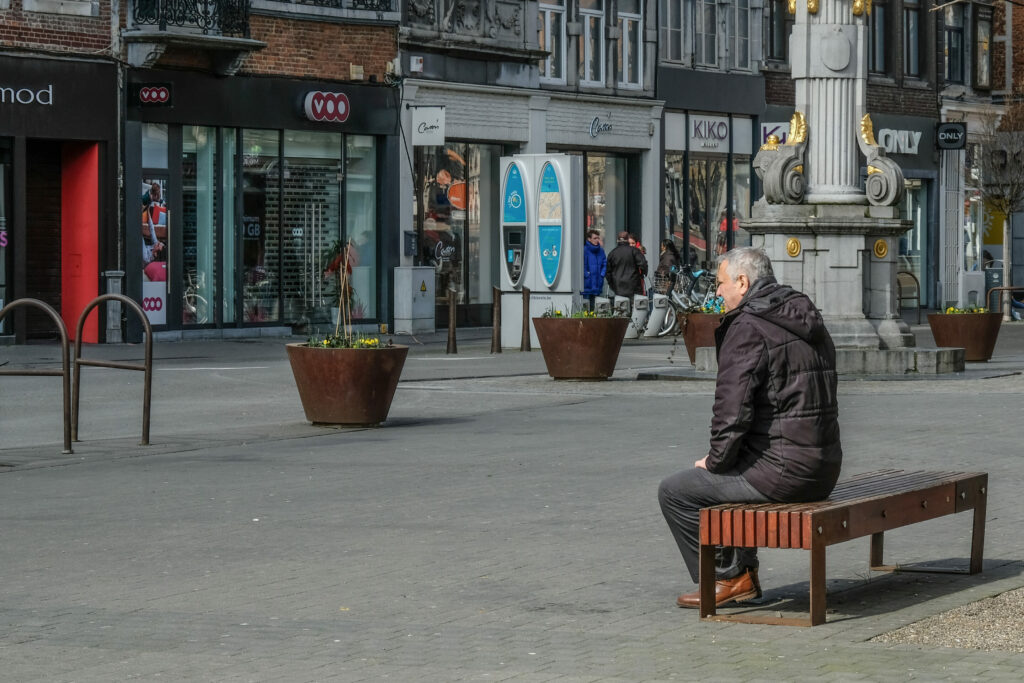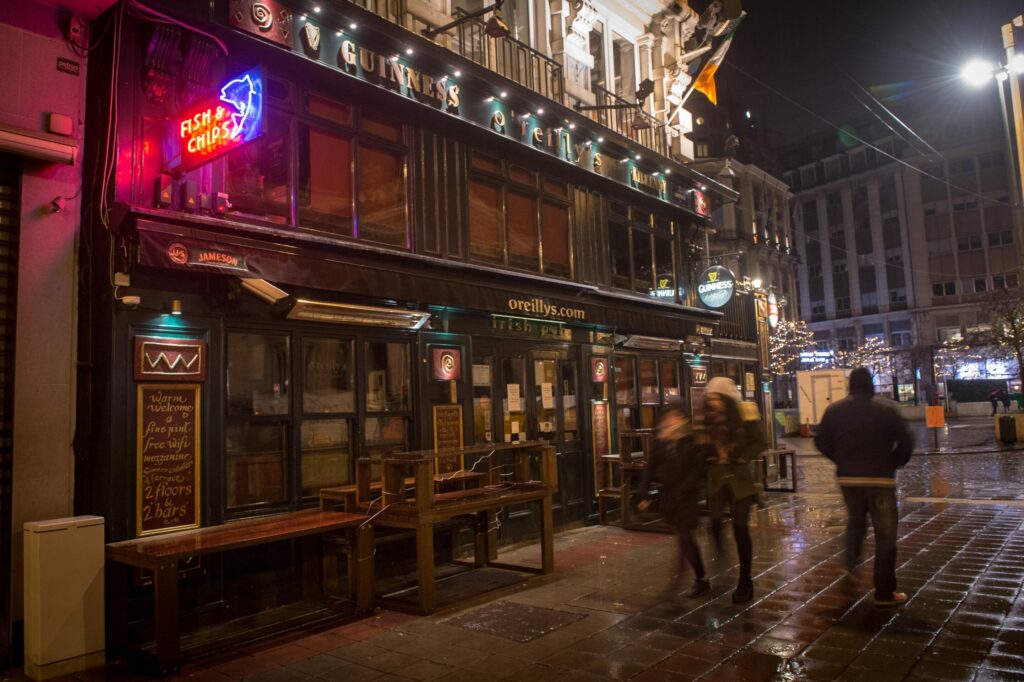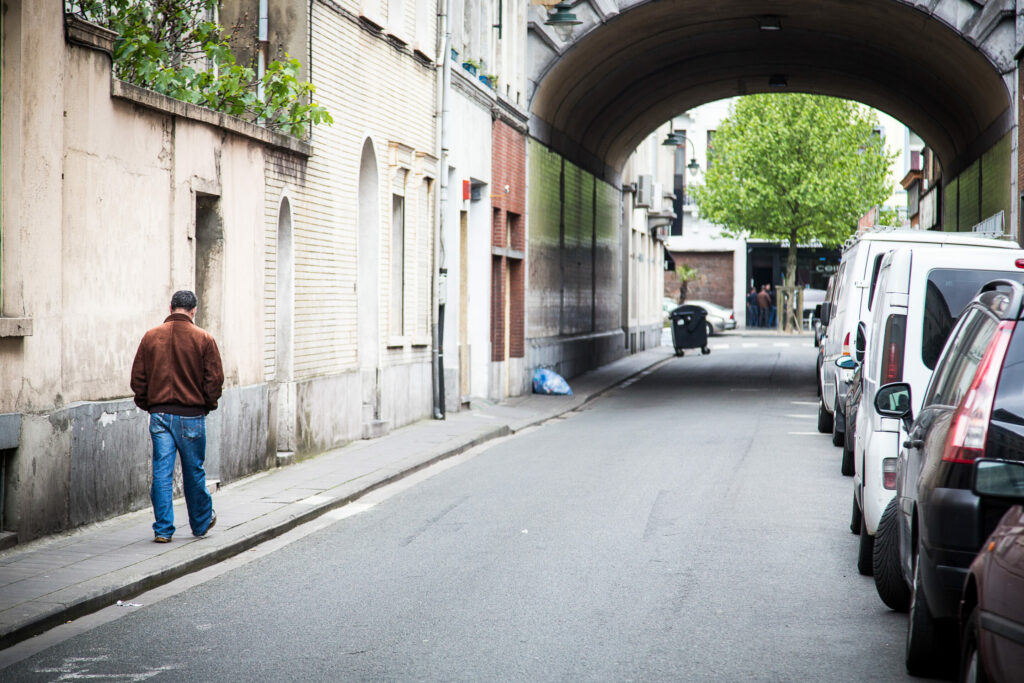The journey of a lifetime, an uprooting, a replanting on foreign soil, starting a new life in Brussels, a career in the heart of Europe. Brussels expats are by nature a disparate collection of people, thousands of life experiences connected only by the fact that they were not born in this city.
But away from their families and friends and networks of support, how do they survive, are they often lonely? Before I moved to Brussels in 2018, I wanted to know what life here would be like. I watched YouTube videos on where to eat and drink, common pitfalls to watch out for, food to try, places to avoid and how to deal with loneliness in the city.
One such video showed a young woman in a candid influencer-style video, face to camera. Carefully crafted intimacy. She had emigrated to Brussels with her husband for his new job, “I was lonely for the first 9 months, but now I’m doing fine” she said, very matter-of-fact. “Will I feel lonely for that long?”, I wondered.
According to a 2022 EU-LS European Commission survey on loneliness in Europe, Belgian respondents were found to have a lower rate of loneliness than the EU average. 13% of the 22,000 Europeans surveyed reported feeling lonely "most or all of the time", while 9-10% of Belgian respondents answered the same. Irish respondents ranked highest: 20% reported feeling lonely most of the time. As an Irishman in Brussels, this stat stuck out.

Credit: Belga
Brussels is demographically and culturally an anomaly compared to the rest of Belgium. According to the national statistics office Statbel, 36.9% of the capital's residents were not born in Belgium. A city of immigrants, from Europe, from abroad. Rates of loneliness amongst this group compared to the general Belgian population are not clear, though one can safely assume that newcomers are more prone to feelings of isolation.
But the figures fail to capture the abundant multiculturalism that makes Brussels such a vibrant city. Moroccan, Libyan and Algerian in Saint-Josse-ten-Noode; Congolese, Senegalese, and sub-Saharan in Matongé; Portuguese in Flagey and Saint Gilles; Irish pubs in the European quarter and Italian delis on Rue Bailli.
Community hubs and centres, all born from the idea of community, are arguably the remedy to loneliness. On my first day in Brussels in 2018 (living then in the centre, a small mezzanine on Boulevard Maurice Lemonnier) I took a walk to the European quarter and found myself drifting into an Irish bar.
I sat and spoke to a young barman. He had been in Brussels for a few years. I being talkative and he having finished his shift, we drank and chatted for longer than two strangers normally would. It was clear to me as we spoke that this bar, and the many like it in Brussels, would be a safety net for me.
I could venture out into this world of different cultures and people and if unsuccessful in friendships I could make my way back here. It would be difficult to be lonely here thanks to these supports.

O'reilly's Irish pub in Brussels city centre, November 2015. Credit: Belga
I could (and have) sat and read in these pubs just to hear the familiar tones of home. An inflection or idiomatic gesture, laughing in a certain way or catching the familiar head-tilt and whispers of gossip. All nationalities have them and to me they signal community, a family of strangers.
Loneliness is still a phenomenon that we don't fully understand – we know it has adverse health outcomes, affects mental wellbeing, even leads to suicidal ideations. There is not one single factor that triggers loneliness but isolation from peers appears to be a common catalyst.
Home and away, can we escape loneliness?
A 2018 paper on loneliness in older migrants, published in the Journal of Environmental Research in Public Health, outlined how the culture from which immigrants come can determine how lonely they are in their adopted country: "…older migrants coming from a collectivist culture into an individualist host society can have higher expectations of social connectedness and greater belonging needs than the new society can meet, leading to a discrepancy between the desired and actual social contact and, therefore, to loneliness."
The paper goes on to explain how people who have migrated to Belgium experience different levels of loneliness, depending on where in the world they emigrate from. "Compared with non-migrants in Belgium, migrants from Southern Europe have the highest level of loneliness, whereas migrants from Northern Europe do not differ from non-migrants in terms of their loneliness levels."
Comparing this with the results of the EU Survey on Loneliness, which noted Ireland as having the highest rates of loneliness levels in Europe, what does it imply about my own experiences as an immigrant to Belgium?
These higher rates of loneliness in Ireland could be based on a series of socio-economic problems facing the country – from economic factors such as a lack of affordable housing to social issues such as youth emigration. According to a poll from Irish online publication The Journal.ie, "almost 1 in 10 Irish people surveyed aged between 18 and 34 say they are actively planning to emigrate from Ireland."
A lack of affordable housing is causing Irish youth to stay longer in the family home. This can lead to anxiety around social progression and social development generally that comes with cohabitation with peers. Gaps that arise in development can feed feelings of inadequacy and thus isolation. Losing peers to emigration can also compound this for the same reason, as well as the literal reduced number of people of certain age groups.
Community as a remedy
While data on rates of loneliness specifically amongst Irish immigrants in Brussels is not available, the high rates of interest in emigrating could point to the fact that the immigrant experience is a positive one – perhaps Brussels is where people come to escape loneliness?
Ultimately, loneliness is a public health issue with quantifiable negative health outcomes but also one that leads to less engagement in public life. It should be treated with the same level of importance as other public health issues. This year, the European Commission will publish the data based on the EU-LS survey as part of a book, "Loneliness in Europe. Determinants, Risks and Interventions", and a deeper look at this data will be available.
While policymakers are still examining loneliness, perhaps it could be worthwhile to see the expansion of our communities as having a medicinal effect. Let’s implement systematic integration of our communities across cultural divides. We may discover that our shared immigrant experience is as strong in boding us as our sense of home.

